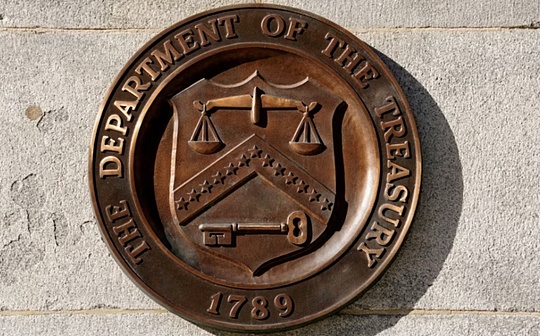
The U.S. Department of the Treasury's Office of Foreign Assets Control (OFAC) recently announced a new round of sanctions against several North Korean bankers and related financial institutions, accusing them of using cryptocurrency for money laundering, fund transfers, and supporting nuclear weapons programs. This action once again highlights the U.S. government's determination to curb the global flow of illicit crypto funds and reveals how North Korea has built an "invisible funding network" through the digital financial system to evade international sanctions.
According to the U.S. Treasury, over the past three years, North Korean hacker organizations and their behind-the-scenes funding operations teams have stolen over $3 billion in digital assets from multiple global exchanges and individual wallets through malware attacks, phishing emails, social engineering, and other means. This figure not only sets a new historical record but also far exceeds the scale of operations of other state-level hacker groups. Two North Korean bankers identified as the primary fund operators — Jang Kuk Chol and Ho Jong Son — are accused of managing related funds on behalf of the already sanctioned "First Credit Bank," with the involved amount reaching approximately $5.3 million.
The U.S. pointed out that North Korea's financial network operates with high secrecy, typically conducting cross-border transfers through "correspondent banks" and "shell companies" established in its own country, Russia, and other third nations. These institutions not only help conceal the source of funds but also utilize decentralized finance (DeFi) platforms and privacy coins for dispersed transactions, making tracking significantly more difficult. This "hybrid money laundering model," which combines traditional banking systems with blockchain technology, is becoming one of the biggest challenges for international regulation.
The U.S. Treasury emphasized that these stolen crypto assets are ultimately used to support North Korea's nuclear and missile development programs, posing a serious threat to global security. Therefore, this round of U.S. sanctions targets not only individuals and banks but also virtual currency wallet addresses and technical intermediary companies that assist in fund transfers, aiming to cut off North Korea's means of raising funds through the crypto market at its root.
Simultaneously, the Treasury Department once again warned global financial institutions and technology companies to be vigilant against "stealthily infiltrating" North Korean IT personnel. According to U.S. intelligence, North Korean authorities have long dispatched technical personnel to enter foreign financial and blockchain companies in the form of outsourcing. After disguising their identities and obtaining internal access, they covertly assist hacker operations or transfer funds.
Analysts point out that this U.S. move is not only a direct blow to North Korea's funding network but also sends a clear signal to the global crypto market: any attempt to use virtual assets for illegal activities or to evade sanctions will face severe accountability. As international regulatory cooperation on crypto assets strengthens, North Korea's "dark chain money laundering" model may find it difficult to sustain.
This round of sanctions is also seen as another significant demonstration by the U.S. regarding the governance of blockchain financial risks, reflecting the international community's deep concern about the delicate relationship between encryption technology and national security issues.
















